Kabhi Alvida Na Kehna: A tribute to music legend Bappi Lahiri
A final goodbye to the musical genius of Bappi Lahiri whose legacy will live on through his melodious numbers
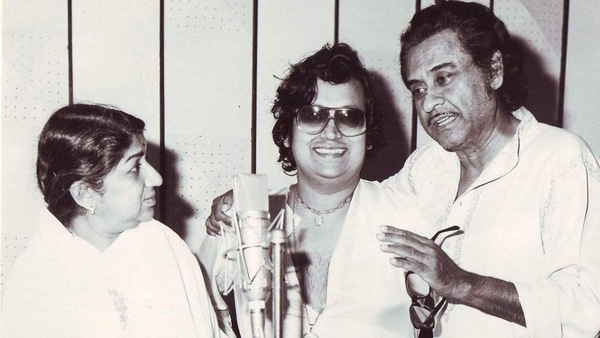
Last Updated: 05.26 PM, Feb 17, 2022
“Gold is very lucky for me,” said Bappi Lahiri once. And for many, Bappi Lahiri was that music director who was forever wearing an excessive amount of gold jewellery and a wide smile. Bappi had a word for his detractors who made fun of his gold obsession. “I think it has to be taken in the right spirit. I used to worship Elvis Presley and I have seen him wear a chain with a huge cross and a belt and bracelets. I was inspired and had my own version. When I made money I bought a lot of gold. And gold has been lucky for me. Why should I listen to what people say about me when Bappa is with me. I named my son Bappa only because of Ganapati", he said showing off his huge Ganapati locket.
“When I was in London and put my jewellery under my shirt Pakistani fans came to me and said, ‘sir you look like Bappi Lahiri with your dark glasses, but where is your gold chain?’ It means that I have my style", he added.
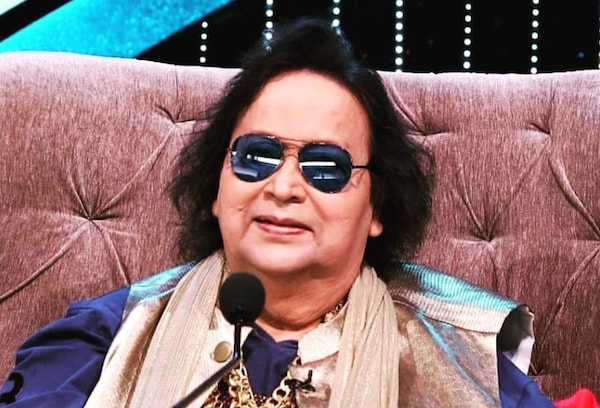
Born Alokesh Lahiri, Bappida (as he was fondly called) is also credited for introducing Bollywood to disco. The swinging 70s are synonymous with disco beats and rhythmic pulpy vocals, a style that became signature to Bappida. While the music director sang many of his own compositions over the years, it was his maternal uncle Kishore Kumar who first urged him to get behind the microphone. The legendary singer was to sing the number “Yaad Aa Raha Hai” for the film Disco Dancer when he heard the scratch recording which had Bappi’s vocals, and insisted that the version be retained in the film.
Once Bappida’s vocal abilities garnered the same attention and reverence as his compositions, Kishore Kumar even joked once saying that if a singer didn’t arrive on time for Bappida’s recordings, he would have sung the song himself. Some of Bappida’s early hits include Pyar Kabhi Kam Nahin Karna from Prem Pratigya and Auva Auva from Disco Dancer. In fact, his tracks from Disco Dancer played an indelible role in carving Mithun Chakraborty’s image as the ‘Disco King’, allowing the actor to also acquire a sizeable fanbase in Russia. Incidentally, Disco Dancer which was released in Russia in 1984 with 1013 prints, two years following its release in India, became the highest-grossing film of the year and the most successful foreign film to be screened in Russia in the 80s. A large part of this achievement can be credited to the film’s foot-tapping numbers.
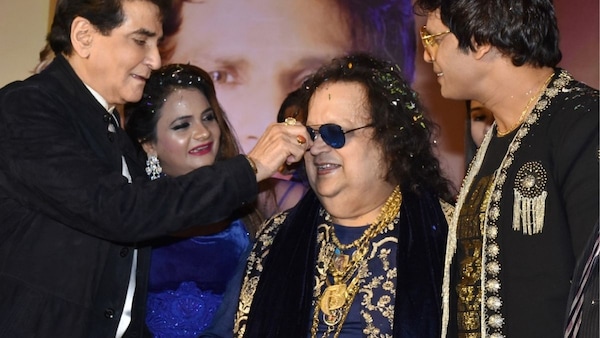
Chakraborty is not the only actor to have Lahiri to thank for his musical genius. Bappida’s melodious compositions played a crucial role in the success of films of actors such as Amitabh Bachchan and Jeetendra. Some of their superhit films include Justice Chowdhry, Jaani Dost, Mawali, Haisiyat, Tohfa, Balidaan, Qaidi, Hoshiyaar,Sinhasan, Suhaagan, Majaal, Tamasha, Sone Pe Suhaga, and Dharm Adhikari were 12 silver jubilee (ran in the theatres for 25 weeks) movies in a three year period from 1983 to 1985. Interestingly, Lahiri also featured in the Guinness Book of World Records when he managed to record 180 songs for 33 movies in 1986.
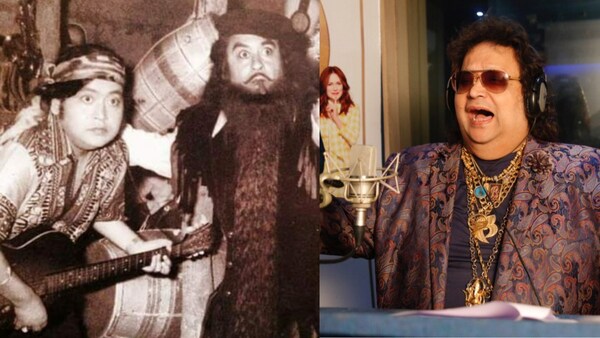
Lahiri’s parents, Aparesh and Bansari, were also accomplished singers from Bengal. Bappi was thus introduced to music at an early age and also rubbed shoulders with legendary talents such as Lata Mangeshkar and Kishore Kumar when he was just a child. Few may know this, but Bappida composed his first song at the age of 11 and he made his stage debut at a musical concert at Eden Gardens where he played the tabla.
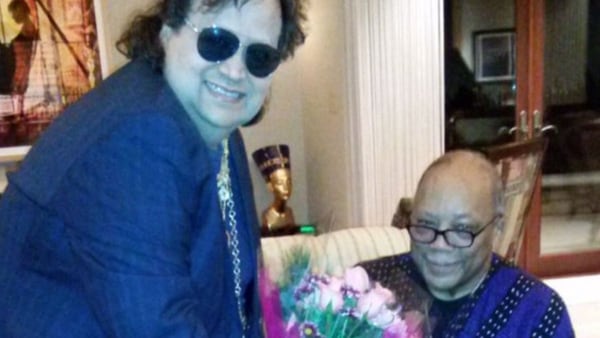
While he made his debut in Hindi film music with Naha Shikari in 1973, few know that he also acted in his maternal uncle Kishoreda’s film, Badhti Ka Naam Dadhi, a year later along with the playback singer’s son Amit Kumar making a cameo in the film. In 1975, Tahir Hussain appointed him to compose the music for his film Zakhmee and the first song he recorded in the late Lata Mangeshkar’s voice, Aao Tumhe Chand Pe Le Jaye, was a huge hit. In fact, this followed a string of chartbuster tracks such as Jalta Hai Jiya Mera, Nothing is Impossible, Abhi Abhi Thi Dushmani and the title track Zakhmee Dilon Ka Badla Chukane.
Bappi once mentioned that some of his fans were upset with him and a renowned composer had even questioned his compositions and particularly alluded to songs such as Rambo Ho and Hari Om Hari. "So I made De De Pyaar De with melody. My Ganapati Bappa is with me, and I have done well and became the disco king*," Lahiri had said.
There was also a time when Asha Bhosle refused to sing songs composed by Bappida allegedly at the insistence of RD Burman. “I cannot name him but a music director told her not to work with me and she stopped singing for me. I had a lot of cabaret songs in Paapi and Lataji said that she would sing for me”, said Bappi once.
Even though Bappida went on to compose popular hits from films such as Disco Dancer and Himmatwala in 1982, he also composed underrated gems such as Gao Re Man in Yesudas’ melodious voice in Apne Paraye in 1980 and Yeh Naina Yeh Kajal from Dil Se Mile Dil in 1978. But Bappi didn’t just specialise in a single genre and his discography is a testament to his prolific work as an artiste. Most notably, the singer-composer broke the mould when he ventured into ghazals for the film Aitbaar with songs like Kisi Nazar Ko Tera and Awaaz Di Hai among others. But the crowd-pleasing chartbusters are the ones Bappida’s fans cherish the most. Songs such as Bambai Se Aaya Mera Dost from the film Aap Ki Khatir, Raat Baaki Baat Baaki, Manzilein Apni Jagah and other songs from Namak Halaal, Koi Yahan Aha Nache Nache from Disco Dancer, Jeena Bhi Kya Hai Jeena from Kasam Paida Karne Wale Ki, Yaar Bina Chain Kahan Re from Saaheb, Dil Mein Ho Tum from Satyamev Jayate (1987) Tamma Tamma Loge from Thanedaar, and Ooh La La from The Dirty Picture capture the spirit of Bappida.
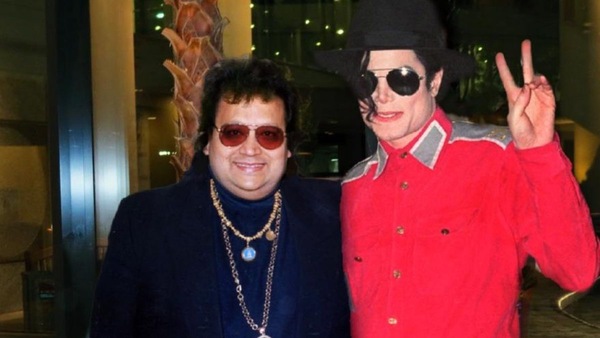
Among the first Indian composers to be recognised internationally, Bappida’s cross border collaborations often made headlines. Most notably, Bappida jammed with MC Hammer on a song called Will to Live. He also worked with American rappers Snoop Dogg and Akon and in 1995, he even pinned down the former pin-up girl and British pop singer Samantha Fox to feature in the song Traffic Jam for the film Rock Dancer starring Govinda. Bappida also got international singing sensation Boy George to share his vocals in a song When Will You learn for the film Love Story 98.
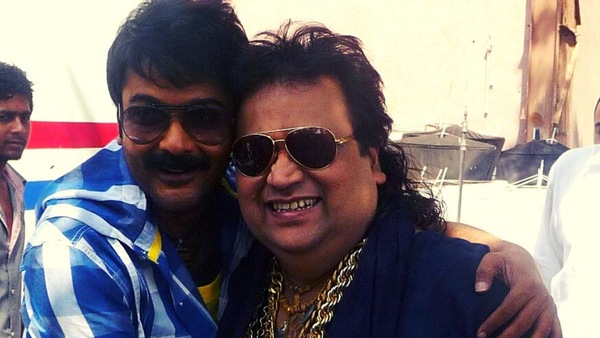
While many may be quick to point out Bappida’s partially inspired numbers, there are many artistes around the world who were touched by his music as well. Some of them even landed in legal hassles for copying his songs. For instance, when portions of the song Thoda Resham Lagta Hai was used by American R'n'B singer Truth Hurts’ Addictive, Saregama (HMV) sued Universal music for $ 500 million. Furthermore, sales were stopped by the order of a LA federal judge and Bappi Lahiri’s name was asked to be listed in the song credits before CDs of the album could be made available for sale.
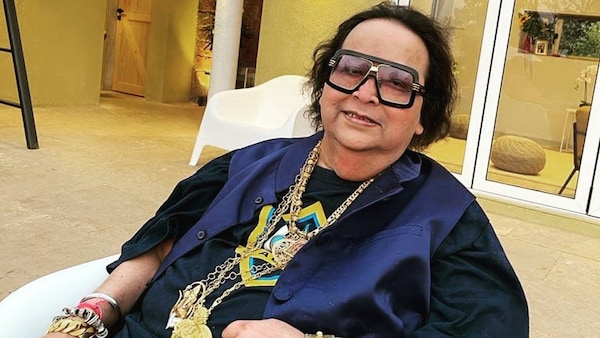
Bappida’s tracks also made it into the soundtrack of several Hollywood movies such as Lion, You Don’t Mess with the Zohan, Moana, and Witness to Murder. A lot of his tracks have also been re-engineered and remixed over the years in films such Badrinath Ki Dulhaniya, Cheat India, among others. Even the Vijay Sethupathi - Fahadh Faasil starrer Tamil hit, Super Deluxe, featured the Bappida hit Jimmy Jimmy in the end credits. It is also the same number that British artist M.I.A covered in her album Kala. Synonymous with Hindi film music for decades, Bappida was also pulled to lend his voice to songs by other composers as well. In recent decades, Bambay Nagariya from Taxi No 9211 and Ooh Lala from The Dirty Picture (both composed by Vishal-Shekhar) were huge hits.
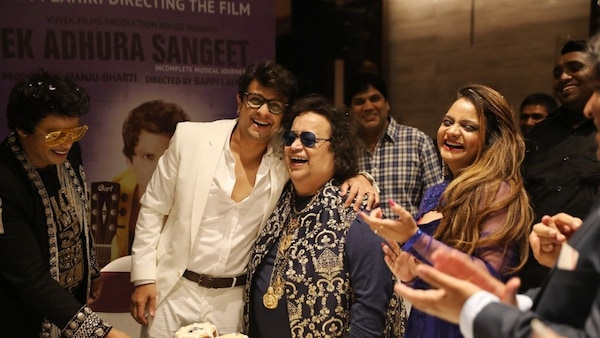
Bappi drew a lot of inspiration from the orchestrations of Elvis Presley and other western musicians in the 80s. Some of the numbers where the artiste completely outdid himself include tracks such as Maana Ho Tum, Pyar Maange Tumhi Se, the award-winning Manzilein Apni Jagah Hai, Ke Pag Ghungroo Bandh, Kisi Nazar Ko Tera and Chirodini Tumi je Amar. But his soul-stirring number Chalte Chalte Mere Yeh Geet yaad Rakhna … Kabhi Alvida Na Kehna is a song that many would like to remember him by.
S Ramachandran has been a film journalist for over 35 years

